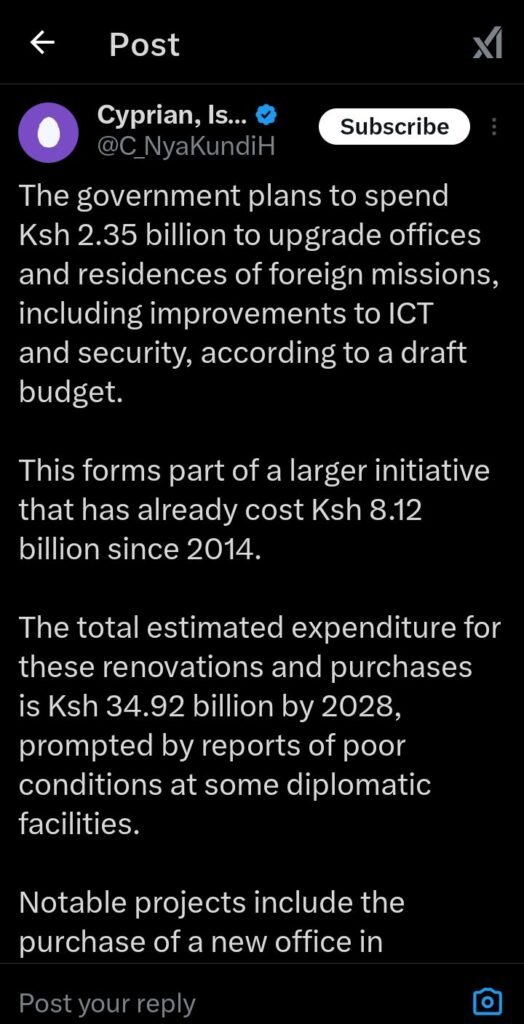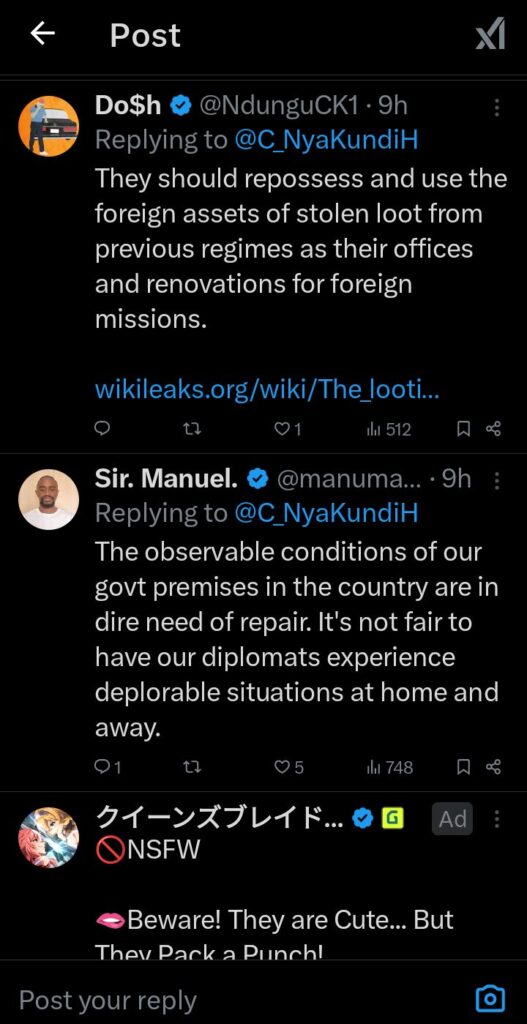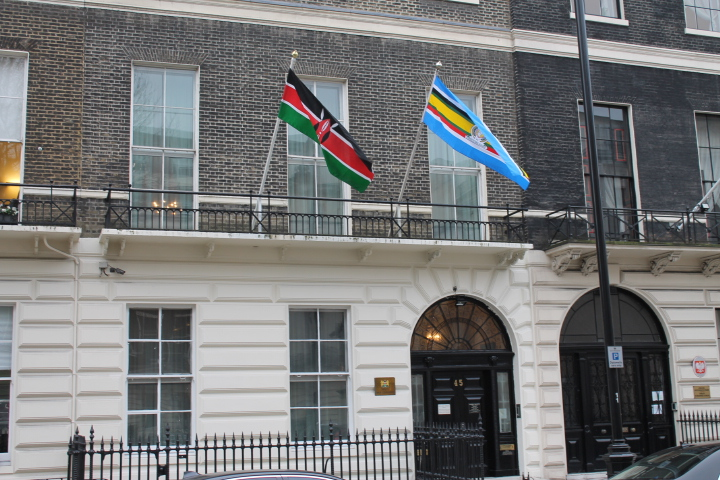The government is planning to spend Ksh 2.35 billion on upgrading offices and residences of foreign missions.
This budget includes improvements to ICT and security, as outlined in a draft budget.
While the government justifies this expenditure by citing poor conditions at some diplomatic facilities, such lavish spending raises serious questions about priorities, especially at a time when citizens are grappling with a struggling economy.
Since 2014, the government has already spent Ksh 8.12 billion on similar projects, with plans to increase the total expenditure to a staggering Ksh 34.92 billion by 2028.
This level of investment appears to cater more to luxury than necessity, given the extravagant costs associated with individual projects.

For example, Ksh 550 million is allocated to purchase a new office in London, while another Ksh 550 million is set aside to renovate the ambassador’s residence in New York.
Such figures highlight a glaring disconnect between the government and the financial hardships faced by ordinary Kenyans.
Instead of channeling resources into essential services like healthcare, education, and infrastructure, these massive funds are being directed toward non-urgent projects abroad.
Meanwhile, many Kenyans continue to suffer from inadequate hospitals, poor road networks, and rising living costs.
The timing of this announcement only exacerbates public outrage, as taxpayers are expected to shoulder the burden of the government’s lavish expenditures while receiving little in return.
Many argue that this spending spree reflects misplaced priorities and highlights the lack of accountability within government institutions.
While it is crucial to maintain the country’s diplomatic image, the scale of these projects suggests a disregard for cost-effective solutions.
The government’s decision to spend billions on luxury upgrades rather than addressing domestic issues signals a leadership more concerned with appearances than with improving the lives of its citizens.

This pattern of excessive spending raises concerns about transparency and oversight.
Are these billions genuinely addressing urgent diplomatic needs, or are they avenues for misuse of public funds?
Without proper checks, the government risks fostering public distrust and further straining the already fragile economy.
Ultimately, this initiative showcases the growing divide between those in power and the citizens they are meant to serve.





















Add Comment